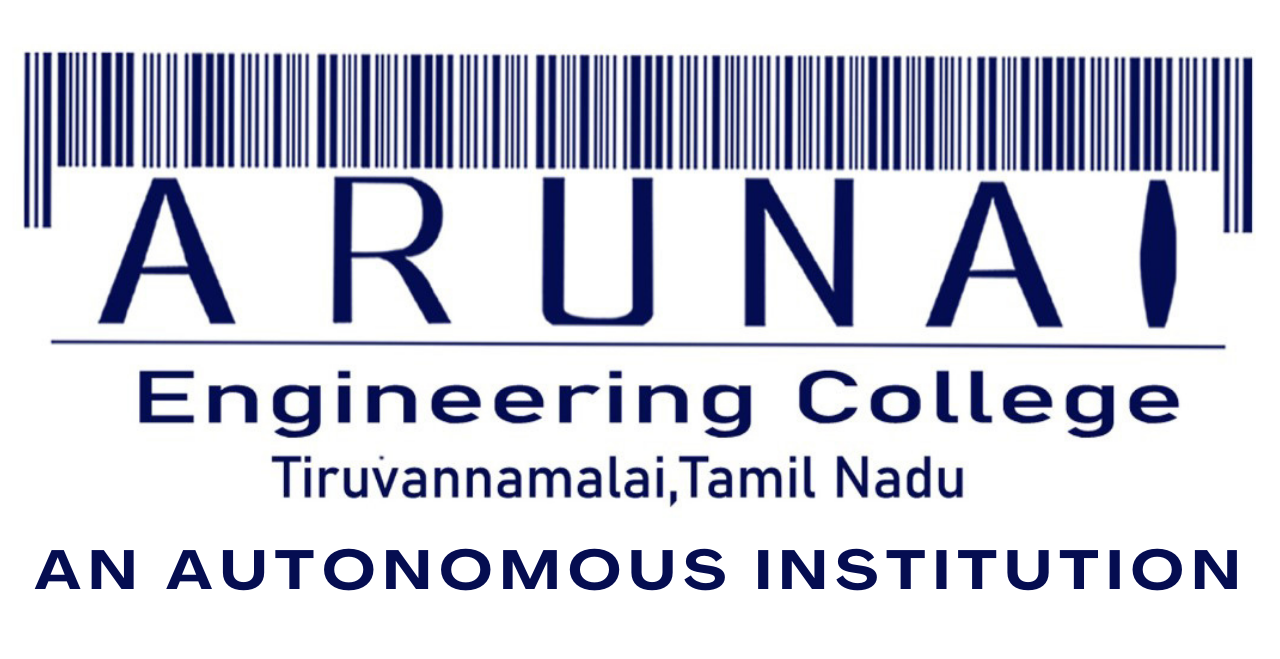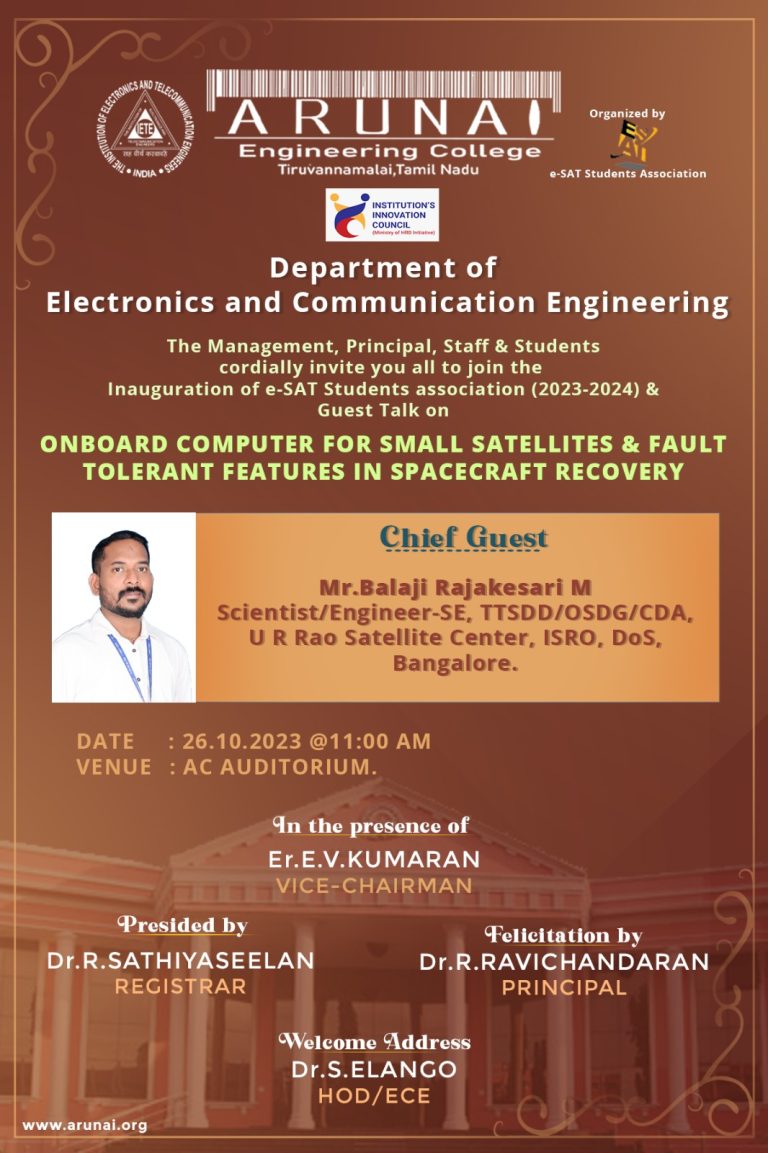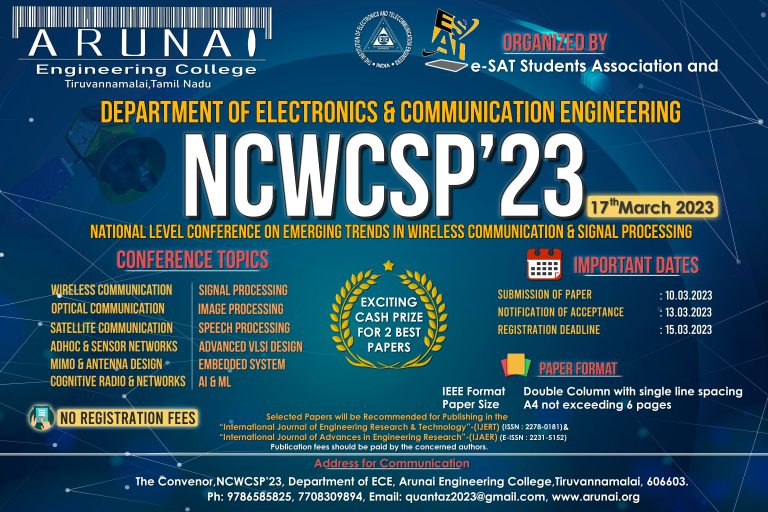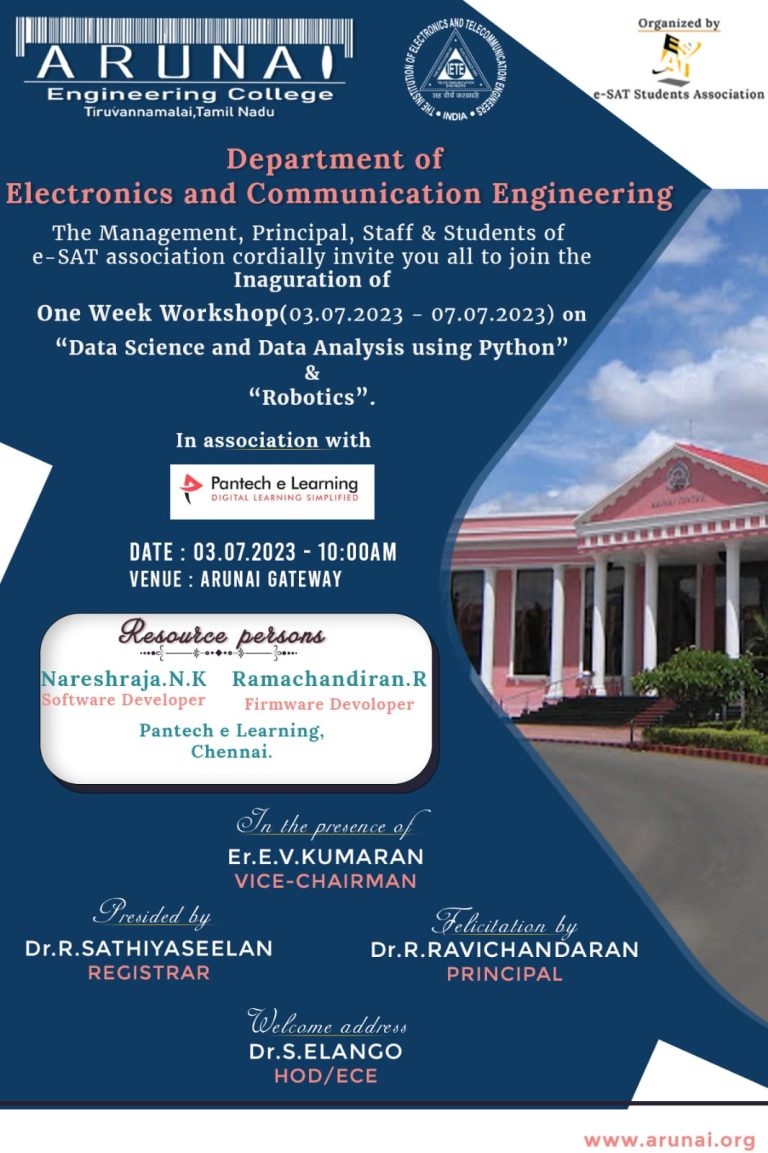Latest Videos
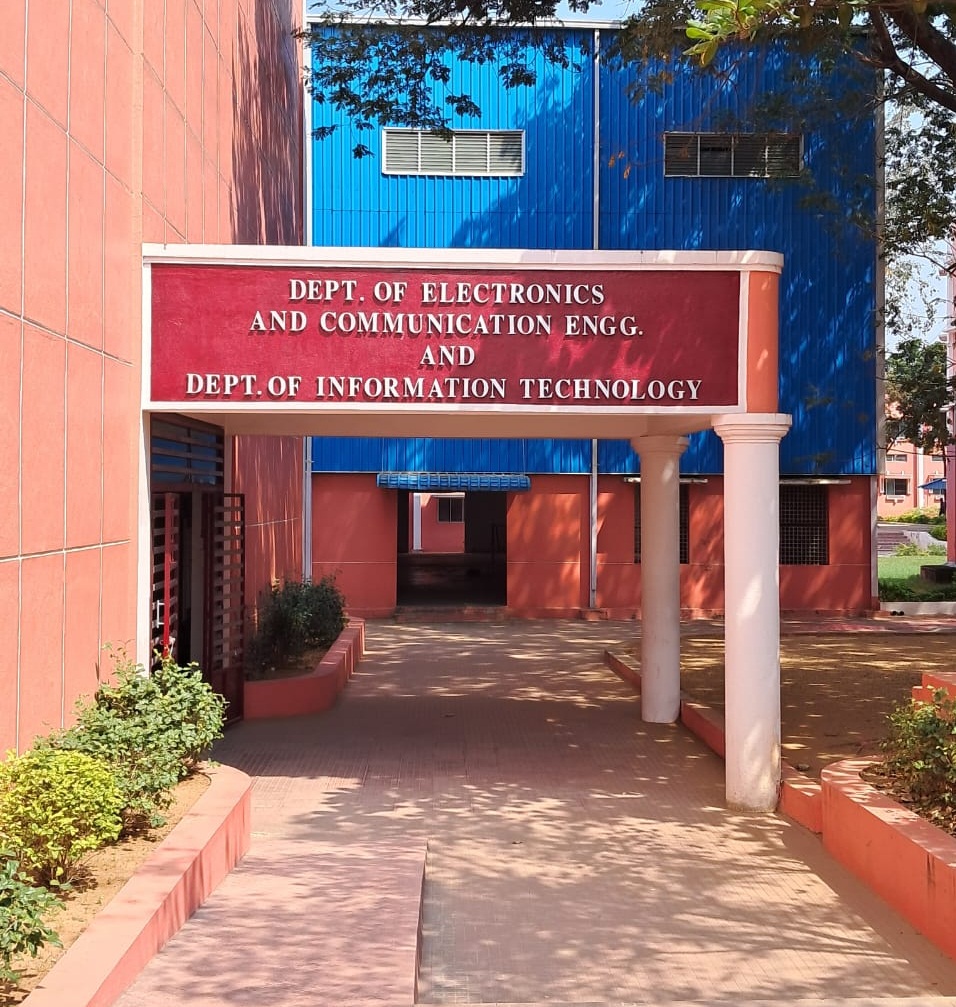
B.E - Electronics and Communication Engineering
The Department of Electronics and communication engineering was established in 1995. The department has the constructive and valuable guidance of the management, ECE department has been making an all round progress. The ECE department has well experienced & qualified Faculties and eleven well equipped and furnished laboratories. We are accredited by ISO, NBA, NAAC and AICTE.
To motivate the Graduates to be successful in the professional practice of engineering or other related fields. They will obtain employment appropriate to their background, interests, and education and will advance in their career field.
Graduates will engage in life-long learning; e.g., advanced education/degrees, professional development activities, and/or other career-appropriate options.
Graduates who are employed within engineering fields will demonstrate technical competence, such as identifying, formulating, analyzing, and creating engineering solutions using appropriate current engineering techniques, skills, and tools.
As appropriate to their professional or educational positions, graduates will
Effectively communicate technical information in multiple formats,
Function effectively on teams,
Develop and apply electrical/computer engineering solutions within global, societal, and environmental contexts.
To become pioneer in higher learning and research and to transform our students into responsible professionals and creative engineers to societal needs.
Ensuring accomplished teaching–learning process to provide in-depth knowledge on the principles of Electronics & Communication Engineering and its applications.
Developing a competitive professional with an excellent professional conduct and group behaviour.
Enhance overall personality with employable and excellent communication skills.
Providing opportunity of industry and department interactions through visits, lectures and Project works.
Program Educational Objectives (PEO)
PEO1 : To enable graduates to pursue research, or have a successful career in academia or industries associated with Electronics and Communication Engineering, or as entrepreneurs.
PEO2 : To provide students with strong foundational concepts and also advanced techniques and tools in order to enable them to build solutions or systems of varying complexity.
PEO3 : To prepare students to critically analyze existing literature in an area of specialization and ethically develop innovative and research oriented methodologies to solve the problems identified.
Program Outcomes (POs)
PO1 – Engineering Knowledge: Apply the knowledge of mathematics, science, engineering fundamentals and an engineering specialization to the solution of complex engineering problems.
PO2 – Problem Analysis: Identify, formulate, review research literature, and analyze complex engineering problems reaching substantiated conclusions using first principles of mathematics, natural sciences, and engineering sciences.
PO3 – Design / Development of solutions: Design solutions for complex engineering problems and design system components or processes that meet the specified needs with appropriate consideration for the public health and safety, and the cultural, societal, and environmental considerations.
PO4 – Conduct investigations of complex problems: Use research-based knowledge and research methods including design of experiments, analysis and interpretation of data, and synthesis of the information to provide valid conclusions.
PO5 – Modern tool usage: Create, select, and apply appropriate techniques, resources, and modern engineering and IT tools including prediction and modeling to complex engineering activities with an understanding of the limitations.
PO6 – The engineer and society: Apply reasoning informed by the contextual knowledge to assess societal, health, safety, legal and cultural issues and the consequent responsibilities relevant to the professional engineering practice.
PO7 – Environment and sustainability: Understand the impact of the professional engineering solutions in societal and environmental contexts, and demonstrate the knowledge of, and need for sustainable development.
PO8 – Ethics: Apply ethical principles and commit to professional ethics and responsibilities and norms of the engineering practice.
PO9 – Individual and team work: Function effectively as an individual and as a member or leader in diverse teams, and in multidisciplinary settings.
PO10 – Communication: Communicate effectively on complex engineering activities with the engineering community and with society at large, such as, being able to comprehend and write effective reports and design documentation, make effective presentations, and give and receive clear instructions.
PO11 – Project management and finance: Demonstrate knowledge and understanding of the engineering management principles and apply these to one’s own work, as a member and leader in a team, to manage projects and in multidisciplinary environments.
PO12 – Life-long learning: Recognize the need for and have the preparation and ability to engage in independent and lifelong learning in the broadest context of technological change.
Program Specific Outcomes (PSOs)
PSO1 : To analyze, design and develop solutions by applying foundational concepts of electronics and communication engineering.
PSO2 : To apply design principles and best practices for developing quality products for scientific and business applications.
PSO3 : To adapt to emerging information and communication technologies (ICT) to innovate ideas and solutions to existing/novel problems.
Our quality policy is to continuously strive for over-all development of the ECE department and the students. Our policy is to provide best inputs to the students and to develop them to imbibe the spirit of professionalism, dedication & commitment.
When a person/student joins the organization he is made aware of the quality policy of the institution. Head of the department review the output of the efforts made by teachers every month & deviations from the parameters of the policy are identified. For Guest Lectures eminent personalities are invited to the college to enhance confidence, commitment & skills of the teachers/students.
Opening new avenues of success, leadership, achievement and career building with strong industry institution interaction.
Emphasizing an all round development of personality of students so as to prepare them to undertake bigger challenges and responsibilities as a successful professional.
To involve students in R&D activities.
To undertake R&D works in leading technologies.
Crafting a research center to facilitate the faculty members to pursue their higher studies leading to doctoral degree.
To get sponsorships from organizations for students and faculty projects.
Alumni's Feedback

Thiyagarajan Ranganathan
Arunai has been the precursor to laying my foundation for my academic and research career. It gave me an opportunity to meet a different kind of people and learn leadership skills. My experience at Arunai made me stronger and took me a step ahead for being a researcher.

Akash V
One of the best college in and around. Best environment to learn and improve our knowledge. Providing a good placements. Helps the student not only to focus in studies but also in sports.

S.C.Velu
Life at AEC was very knowledgeable and I have learnt many things technically with the support of my wonderful faculty.Hostel and food facility at our hostel were way far good. And we had a homely environment staying over there.
Latest News
Data Science and Data Analysis using Python, Robotics
Jul 03, 2023 | @ 10:00 AM One Week Hands on workshop on Data Science and Data Analysis using Python and Robotics
